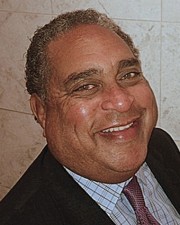
Property Advisors
Considering a §1031 exchange? The first step is to put together a few folks to get you started. By asking and answering some basic yet important questions §1031 professionals can help you to set and stay on course. Your team should include a real estate tax professional (usually a CPA) to ascertain your tax standing and liabilities should you sell/exchange your property. It should be noted that not every investment property sale lends itself to the §1031 strategy, each is a unique transaction. The second member of your team is a Qualified Intermediary (QI). QI’s are required by the IRS to complete a §1031 exchange. An experienced qualified intermediary will keep you on track and maintain custody exchange funds throughout the transaction. Any misstep could lead to a taxable event and potentially void the exchange. With your team in place you are ready to sell your investment property, starting the clock on your §1031 exchange.
Once you sell your relinquished property, you have 45 days from the date of closing to identify (in writing) your replacement properties, then 135 days to close on them. The entire exchange, closing to closing, can take no more than 180 days. Accordingly your exchange professionals should be able to keep you out of the weeds and compliant with the regulations.
Lots of choices available for replacement properties both locally and nationally. Replacements can range from fee simple ownership of a local property to a securitized percentage ownership of a larger professionally managed property or portfolio, often with national credit tenants. Many exchangers are ready to leave the day-to-day rigors of property management behind…the three Ts..toilets, trash, and tenants. Here are several categories or asset classes that may provide for the relief you may be seeking:
• Multifamily (apartments)
- High demand asset class
- Millennials not buying, renting instead
- Ability to grow rents year over year growth
- Properties across the spectrum, class A through C Higher tenant credit risk and generally only one year lease term
- Value-add component is important.
Demand for multifamily housing has skyrocketed in recent years as Millennials often opt to rent instead of buy. Investors looking to enter the asset class should be wary of overpriced properties. Paying a premium for a class A property in a primary market can make a profitable sale difficult to achieve. Investors may be better served buying a class B property in a growing secondary market. Capital improvements and rent growth can lead to an increase in property value, and thus a profitable sale.
• Medical Office (often adjacent to major hospitals)
- Largest generation entering retirement
- Average life expectancy increasing
- Healthcare is a very high demand sector
- Strong tenants, long-term leases.
With the Baby Boomers entering retirement, demographics strongly support healthcare. Properties located next to a medical center are often more stable, and multiple tenants can provide credit diversity. Leases are usually long term, with minimal annual increases. Sunbelt locales can be particularly attractive.
• Self Storage
- Non-cyclical sector has seen growth, even during recessionary years
- Ability to raise rents on sometimes a monthly basis
- Low operating cost
- Numerous mom/pop owned facilities that could be managed more efficiently provide attractive acquisition opportunities.
As America’s love of stuff continues unabated this sector has proven not only to be resilient, but continues to grow and garner investor attention. Upside potential may be stressed because prices are being bid up as more dollars pursue this asset class.
• Retail
- Perhaps the most traditional sector
- Long-term NNN leases
- Investment Grade Tenants (Walgreens, Advanced Auto, Sherwin Williams)
- Geographically diverse portfolios available.
Brick-and-mortar retail is in flux, as online shopping has begun to challenge traditional retail norms. We prefer well-situated grocery anchored centers with adjacent local space that may include dry cleaners, pizza shops, hair salons and other service related businesses.
Real estate is no longer solely a local proposition. Value hunters commonly look regionally or nationally to obtain more favorable metrics, often with a professional property management company in place allowing for a more turnkey approach to investing. For more than 30 years we have been helping investors find real estate solutions that make sense. Offices in Maine, Pennsylvania, and Florida. Properties located in promising, stable, and growing markets nationally.
Gregory Hill is managing partner of Prime Property Advisors, Saco, ME.
.png)






